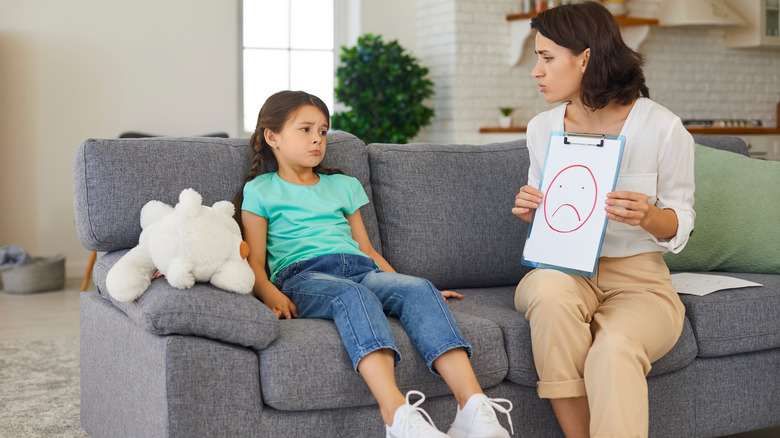Does Being Autistic Really Mean You Can't Feel Empathy?
It's often assumed by neurotypical people that those with autism spectrum disorder lack empathy, or the ability to understand the feelings of others. Plenty of research has been done on the topic for years — so does being autistic really mean that you can't feel empathy?
Autism spectrum disorder (ASD) impacts how people learn, behave, communicate, and interact with others, according to the National Institute of Mental Health. It's a developmental and neurological condition that usually presents in the first two to three years of life, characterized by limited interests, repetitive behaviors, and difficulty with communication and interaction. People experience a wide range of severity of symptoms, which is why it's known as a spectrum disorder. Signs of ASD vary but can include difficulty making eye contact, becoming upset about small changes in routine, an ability to learn things in detail and retain information for a long time, and having trouble adjusting behaviors to different social situations. It's thought that both genetics and environment contribute to the development of autism, and you're more likely to develop it if you have a sibling with ASD, have older parents, have a low birth weight, or have certain genetic conditions, such as Down syndrome.
Asperger's syndrome was once a commonly used term to describe certain types of autism, but as of 2013 this diagnosis no longer exists, according to Healthline. All forms of autism now fall under ASD.
Autistic people just experience empathy differently
So how does this tie in with the concept of empathy, the ability to share or understand another's feelings? It's true that the social challenges of ASD may present as showing little interest in others, having challenges relating to others, and difficulties with expressive language, according to PsychCentral. But just because a person has these challenges, it doesn't mean that they can't experience empathy.
Just as non-autistic people experience different levels of empathy, so do those with ASD. More and more research is being done on the topic, and a study from 2018 shows that there's a difference between cognitive empathy and affective empathy in autistic people. While an autistic person may struggle with cognitive empathy, or the ability to recognize another's mental state, they typically are able to experience affective empathy, or the drive to respond to another's mental state with an appropriate emotion. For example, an autistic person may notice someone struggling with car problems in a parking lot but not realize they might need help (cognitive empathy). But, they might notice the person is feeling stressed by it and ask them what's wrong (affective empathy). Often, autistic people just need to be taught the skills of identifying emotions and labeling their own feelings, which can be done effectively through modeling (per PsychCentral).
Why there's a gap in understanding those with ASD
The fact that neurotypical people might assume that an autistic person lacks empathy might actually just be a mismatch in communication (via PsychCentral). Studies show that two autistic people who interact with each other have no problems developing the same level of rapport as two non-autistic people. But when an autistic person and a non-autistic person interact, there's a greater likelihood of miscommunication, leading to assumptions about the autistic person's ability to relate. It's possible that the neurotypical person simply lacks an empathetic understanding of the autistic person's experience.
According to the CDC, 1 in 54 8-year-old children were diagnosed with ASD in 2016, up from 1 in 59 in 2014. This highlights the importance of the need to properly understand ASD. If we are becoming ever more adept at detecting autism, why is there still so much assumption about those with ASD lacking empathy? Perhaps as neurotypical people continue to educate themselves more on the experience of those living with ASD, this could not only improve communication, but promote the respect and acceptance that autistic people deserve.



